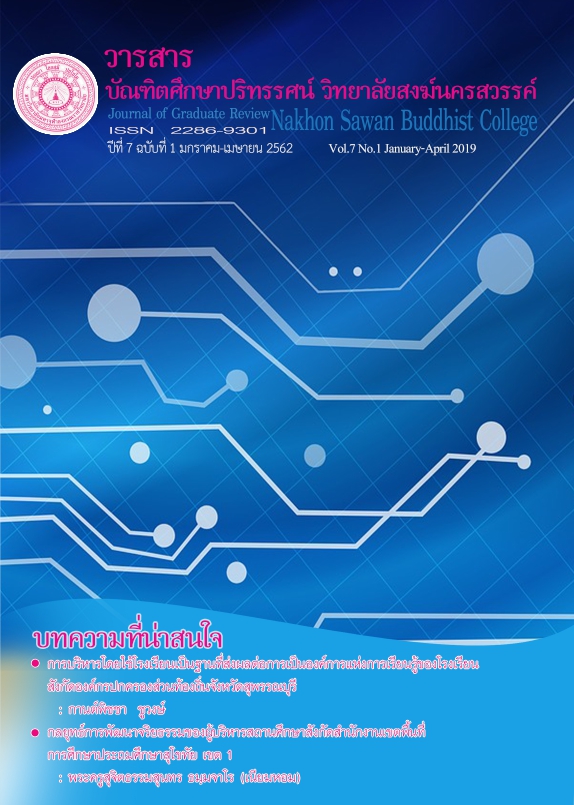Application of Dharma Principle In Education of The Dhamma Practice With Modern Science การประยุกต์ใช์หลักอิทธิบาทธรรมในการจัดการศึกษา สำนักปฏิบัติธรรมกับศาสตร์สมัยใหม่
Main Article Content
Abstract
The path of accomplishment was taught by the Buddha consists of Chanda means to make comfortable mind in good action or to develop our mind, Viriya means mind effort or right speech The value of path of accomplishment is the succeed principle for the follower from the past to present. One should appreciate one’s work, continuous effort on one’s work, consider by various ways. To do so, one will success. To develop mind for high condition, one should follow the path of accomplishment. This principle can develop one to be good quality and can live in society with happiness.
An application the 4 Iddhipadas to develope the quality of life is to use those principles for succeed work. To be appreciate on learning, to cultivate mind and to work called Chanda means learn how to success. To effort for developing mind and work or to attention and take high responsibility called Viriya means make mind and work for good quality. To dedicate our mind and concentrate our work or to learn and develop our mind called Citta. To consider and contemplate by knowledge or always improve called Vimamsa.
Dhamma School with Modern Science The issue of Buddhism education has expanded in many countries. So the Buddhists around the world have turned their attention to meditation. And Buddhism education must adapt to the modern era. It is an important opportunity that we will look forward to. We will move in that direction. And to determine how to study Buddhism, how to adapt and meet the needs of those groups. "Knowledge of the facts. And the rules are systematically organized. Integration with interdisciplinary integration lies in the linkage between disciplines. Together, they work together as a collective.

